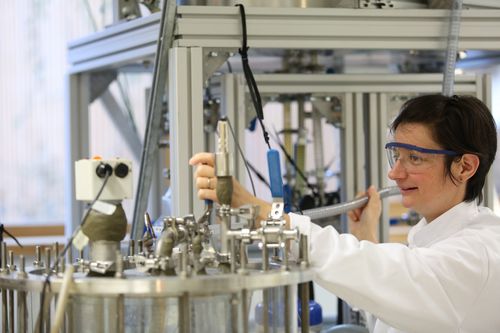
The LOCIE laboratory
Sustainable energy and building
LOCIE develops multi-disciplinary research around one object - the building in its environment (sustainable, stable, high-performance, energy collector/producer, comfortable and healthy) - to meet the challenges of energy and environmental transition.
Research is divided into 3 themes:
BASE - Sustainable building: Structure and Envelope
BASE studies building components to understand and control the thermal, mechanical and hydric responses of envelope and structural elements in new and existing buildings. It also focuses on the integration of non-conventional materials and components with multiple functions.
STEP - Energy and Process Systems
STEP focuses on the design of systems to meet the needs of sustainable buildings. It designs, models, evaluates and optimizes innovative energy and air treatment processes, including heat exchangers, storage systems, solar components and particle filtration.
SITE - Systems and Buildings Integrated into Towns and Territories
SITE focuses on the challenges of managing energy resources and vectors on a regional scale. It characterizes, models and optimizes the overall performance of buildings, or fleets of buildings, in their environment, and their interactions via energy networks.
The LOCIE laboratory is a joint research unit CNRS - Université Savoie Mont Blanc which focuses its research activities on "sustainable energy and building", within theINES - Institut National de l'Energie Solaire.
The unit has a staff of 70: teaching and research staff, technical and administrative staff, PhD students and post-docs.
